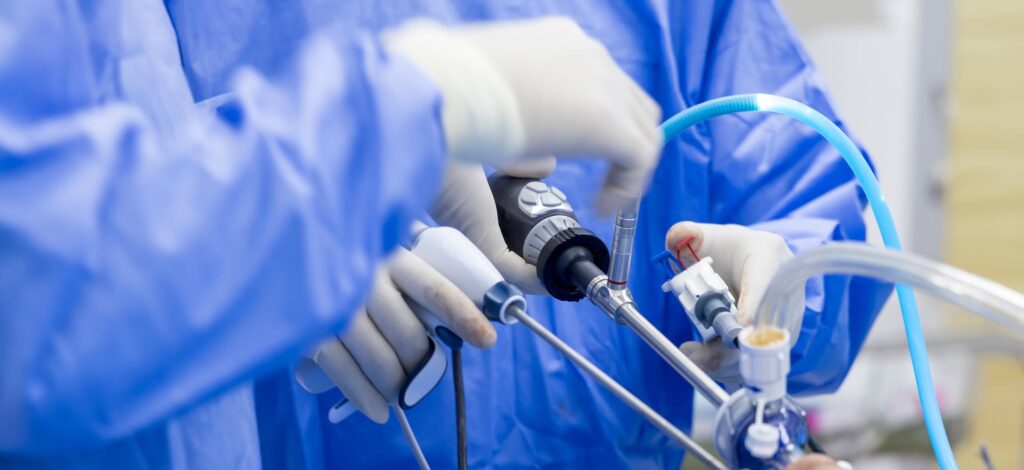Andropause, the lesser-known male version of menopause, is a very real condition, and it is used to describe the decline in testosterone production in ageing men. This leads to a series of symptoms such as decreased energy levels, sex drive, muscle mass and bone density. Generally, andropause generally begins insidiously in males at the age of 40.
The term “andropause” is derived from the word “androgen”, which refers to male sex hormones. Due to changes in hormone levels, particularly a decline in testosterone levels, andropause becomes a risk factor for several urinary conditions. Testosterone also plays a huge role in male sexual and reproductive health.
Some common urinary conditions associated with andropause and ageing include:
Benign prostatic hyperplasia refers to the enlargement of the prostate gland and is the most common cause of lower urinary tract symptoms (LUTS). It most commonly occurs in men over the age of 50.
When the prostate becomes enlarged, it can compress the urethra and interfere with the flow of urine. This, in turn, could lead to LUTS symptoms and more serious conditions, such as renal failure.
Ageing leads to an enlarged prostate and weaker bladder resulting in poorer urine emptying, hence increasing your risk of urinary tract infections.
Erectile dysfunction (ED) is a condition whereby the man struggles to get or maintain an erection during sex. While it may be normal to experience problems with erections occasionally, ED occurs routinely during sexual intercourse.
Infertility in men may occur due to a number of reasons, such as low sperm production, abnormalities in sperm function, illnesses, injuries and even lifestyle changes. This results in lower chances of impregnating their female partners.
In Singapore, 15% of Singaporean couples experience difficulty getting pregnant, of which half of these instances are due to male infertility.
Treatment begins with a thorough consultation with your urologist. This involves getting your hormone levels tested, and a review of your symptoms and medical history.
Your doctor may also conduct a physical examination and run a variety of in-clinic diagnostic tests to understand how your urinary tract functions and to identify any abnormalities in your urinary tract. This will help rule out any underlying conditions you may have.
Depending on your condition, your doctor may recommend testosterone replacement therapy (HRT). HRT helps replace lost testosterone to treat andropause symptoms. This will help improve sexual and erectile function, as well as bone mineral density and bone strength.
Should you have other andrological conditions, your doctor may recommend minimally invasive treatment or surgery. For example, benign prostatic hyperplasia can be treated with more conservative methods, such as medication (alpha-blockers or/and 5-alpha reductase inhibitors), or minimally invasive procedures such as transurethral resection of the prostate (TURP) or ablative therapy. This helps restore normal urine passage through the prostate.
Ultimately, the best course of treatment will be made during your consultation with your urologist, who can help determine what would best suit you based on your circumstances.

Many andrological issues become more common with age. Thankfully, many of these conditions can also be treated and managed effectively. The first step to getting treatment starts with properly understanding your condition. If you experience urinary symptoms, please consult your urology doctor for a thorough diagnosis and personalised treatment plan.
No issue is too small. Contact any of our friendly staff and we will get back to you as soon as possible.
Reach out to us for expert urological care.
For enquiries, leave a message and our friendly team will get in touch with you.
For urgent enquiries after office hours, call or WhatsApp us at (65) 9835 0668.
Monday – Friday: 9:00AM – 5:00PM
Saturday: 9:00AM – 12:30PM
Sunday & Public Holiday: CLOSED
Reach out to us for expert urological care.
For enquiries, leave a message and our friendly team will get in touch with you.
For urgent enquiries after office hours, call or WhatsApp us at (65) 8082 1366.
Monday – Friday: 9:00AM – 1:00PM | 2:00PM – 5:00PM
Weekends & Public Holidays: CLOSED

© 2023 All Rights Reserved | Assure Urology & Robotic Centre | Terms & Conditions